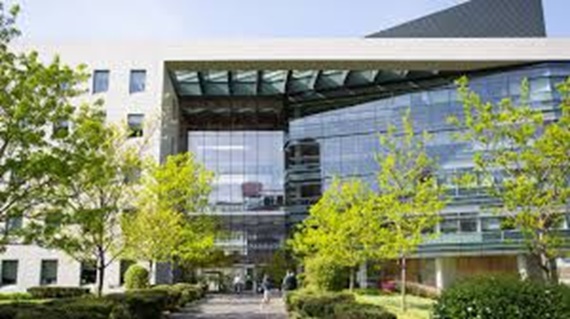
Albert Einstein College of Medicine: A Legacy of Excellence
Albert Einstein College of Medicine: A Legacy of Innovation and Excellence
Albert Einstein College of Medicine, often referred to simply as Einstein, stands as one of the premier institutions for medical education, research, and clinical care in the United States. Located in the Bronx, New York, the college has long been a beacon of innovation and scientific advancement. Its commitment to excellence has made it a respected name in the world of medicine and research.
This article delves into the history, contributions, programs, and ongoing impact of the Albert Einstein College of Medicine, a place where the boundaries of medical science are continually pushed forward.
The History and Foundation of Einstein College
The Albert Einstein College of Medicine was established in 1955, under the auspices of Yeshiva University. It was named after the legendary physicist Albert Einstein, who gave his name and blessings to the institution. This connection to Einstein added a symbolic layer to the institution’s mission: to combine rigorous scientific inquiry with compassionate clinical practice.
From its inception, the college was revolutionary in its approach to medical education and research. At a time when there were limited opportunities for women and minority students to enter the field of medicine, Einstein broke barriers by welcoming students from diverse backgrounds.
Core Mission and Values
The mission of the Albert Einstein College of Medicine is deeply rooted in the principles of scientific discovery, ethical practice, and service to humanity. Its values emphasize:
- Excellence in Education: Providing students with cutting-edge knowledge and tools to become leaders in medicine.
- Innovative Research: Conducting groundbreaking research that addresses some of the most pressing health challenges in the world.
- Diversity and Inclusion: Embracing diversity in all its forms and ensuring equal opportunities for all.
- Community Engagement: Partnering with local communities to address health disparities and improve public health.
Academic Programs at Einstein
1. MD Program
The MD program at Einstein is designed to create physicians who are not only skilled clinicians but also compassionate caregivers. The curriculum is rigorous, integrating foundational medical sciences with clinical practice from the earliest stages of training.
Students are exposed to various specialties, including internal medicine, pediatrics, surgery, psychiatry, and more. Additionally, Einstein emphasizes early clinical exposure, problem-based learning, and interdisciplinary collaboration.
2. PhD and MD-PhD Programs
Einstein is home to one of the most prestigious MD-PhD programs in the country. Known as the Medical Scientist Training Program (MSTP), it equips students to become physician-scientists capable of bridging the gap between laboratory research and clinical medicine.
The PhD program, on the other hand, offers research opportunities in fields such as cancer biology, neuroscience, immunology, and bioinformatics. Einstein’s state-of-the-art facilities and world-renowned faculty provide an ideal environment for scientific exploration.
3. Graduate Programs in Biomedical Sciences
For those interested in biomedical sciences but not pursuing an MD or MD-PhD, Einstein offers robust graduate programs. These programs prepare students for careers in academia, industry, and government by providing interdisciplinary training in emerging fields.
4. Global Health and Community Medicine
Einstein also offers specialized programs in global health, emphasizing the role of medical professionals in addressing health inequities worldwide. Students have opportunities to work in underserved areas, both domestically and internationally, gaining valuable experience in public health and community medicine.
Research Excellence at Einstein
Einstein has consistently ranked among the top medical schools for research. Its faculty and students have contributed significantly to scientific understanding and medical advancements. Key research areas include:
1. Cancer Research
Einstein is home to the Montefiore Einstein Cancer Center, a leading hub for cancer research and treatment. Researchers at the center work on understanding the molecular mechanisms of cancer, developing new therapies, and improving patient outcomes.
2. Infectious Diseases
The college has made substantial contributions to understanding and combating infectious diseases. From HIV/AIDS to COVID-19, Einstein researchers have been at the forefront of developing treatments and public health strategies.
3. Neuroscience
Einstein’s Dominick P. Purpura Department of Neuroscience is one of the largest and most renowned in the country. It focuses on unraveling the complexities of the brain, with research ranging from basic neurobiology to the development of therapies for neurological disorders like Alzheimer’s and Parkinson’s.
4. Aging and Longevity
The Institute for Aging Research at Einstein is dedicated to studying the biological processes of aging and developing interventions to enhance quality of life in older adults. This includes groundbreaking work on the genetics of aging and age-related diseases.
Clinical Care and Community Engagement
Einstein is closely affiliated with Montefiore Medical Center, one of the largest healthcare systems in New York.
Montefiore’s mission aligns with Einstein’s, focusing on patient-centered care, social determinants of health, and reducing health disparities. Together, they run several community outreach programs, providing free or low-cost health services to underserved populations.
Diversity and Inclusion
From its founding, Einstein has been a trailblazer in promoting diversity within the medical field. It was one of the first medical schools to actively recruit women and underrepresented minorities. Today, Einstein continues this tradition by fostering an inclusive environment and addressing systemic barriers to education and healthcare.
The college’s Office of Diversity and Inclusion works tirelessly to ensure equitable opportunities for students, faculty, and staff. Initiatives include mentorship programs, pipeline programs for underrepresented students, and community partnerships to address health inequities.
Challenges and Future Directions
Like any institution, Einstein faces challenges in adapting to the rapidly changing landscape of healthcare and education. The rising cost of medical education, the need for more diverse representation in leadership roles, and the ongoing public health crises are areas that demand attention.
However, Einstein remains committed to its mission. Future initiatives include expanding research capabilities, integrating artificial intelligence into medical practice, and strengthening its role in combating global health challenges.
Einstein’s Global Impact
The contributions of the Albert Einstein College of Medicine extend far beyond its campus. Alumni of the college have gone on to become leaders in medicine, research, and public health worldwide. From pioneering new surgical techniques to leading public health initiatives, Einstein graduates carry the institution’s legacy of excellence wherever they go.
Moreover, Einstein’s research has had a tangible impact on global health. For instance, its advancements in cancer therapy, vaccine development, and neurodegenerative disease research have saved countless lives and shaped the future of medicine.
Conclusion
The Albert Einstein College of Medicine stands as a testament to what can be achieved when scientific rigor meets compassion and inclusivity. Its commitment to education, research, and community service has made it a cornerstone of medical advancement.
As the college continues to grow and evolve, its mission remains clear: to improve human health through innovation, discovery, and a profound respect for the dignity of all people.







